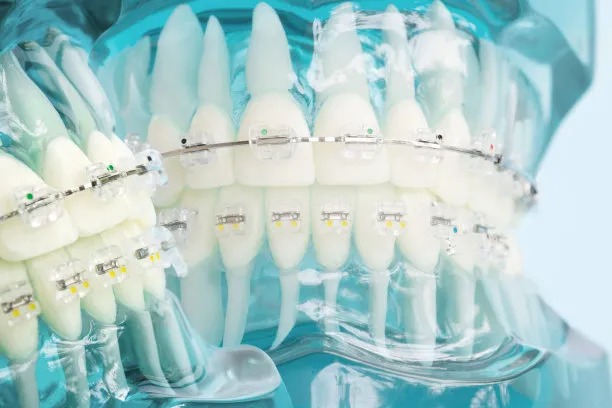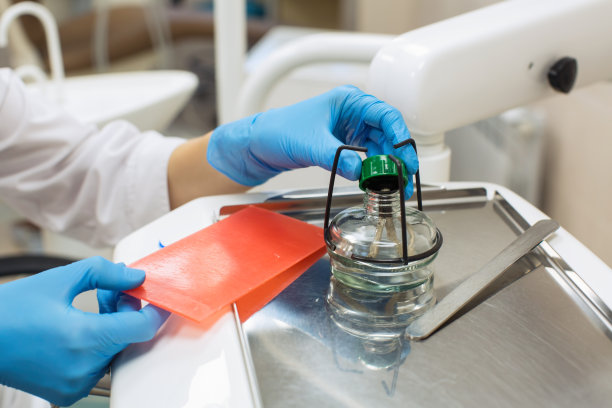Summary: Dental implants represent a promising solution for those suffering from tooth loss. However, achieving a successful implantation experience requires careful consideration of various factors. This article explores essential considerations, including patient eligibility, selection of qualified professionals, post-operative care, and the importance of maintaining good oral hygiene. Each of these aspects plays a critical role in enhancing the success rate of dental implants, ensuring not only functional benefits but also aesthetic improvements for the patient. With thorough preparation and adherence to the recommended precautions, individuals can significantly increase their chances of experiencing a seamless dental implant journey.
1. Patient Eligibility and Preoperative Assessment

An essential step toward a successful dental implantation experience is determining patient eligibility. Not all individuals may be suitable candidates due to specific medical conditions or dental health issues. Comprehensive preoperative assessments play a vital role in identifying these factors. Clinicians must evaluate the patients overall health, including any existing medical conditions such as diabetes or autoimmune disorders, which may impact healing.
Furthermore, dental professionals will conduct thorough imaging studies such as X-rays and CT scans to assess bone density and structure. Adequate bone volume is crucial for anchoring the implants securely. Should a patient lack sufficient bone, options such as bone grafting may be considered, adding another layer to the planning process.
The patients lifestyle habits, including smoking and oral hygiene practices, are also examined. Smoking is known to impair healing and increase the risk of implant failure; hence, patient counseling on lifestyle modifications is vital to create an optimal environment for the implants to succeed.
2. Choosing the Right Dental Professional
Selecting a qualified dental professional is paramount for ensuring a successful dental implantation process. Patients should consider factors such as the clinicians qualifications, experience, and specialization in implant dentistry. A dentist with extensive training and a track record of successful implants can significantly influence the outcome.
Patients are encouraged to seek recommendations or read reviews to gain insights into the dentists reputation and patient satisfaction. Initially scheduling a consultation allows potential patients to assess clinical expertise and comfort with the practitioner. A thorough discussion of the procedure, potential risks, and anticipated outcomes can help patients make informed decisions.
Additionally, the dental facilitys environment and technology also contribute to the implants success. Modern dental practices equipped with advanced imaging and surgical tools can enhance precision and minimize complications during the procedure. Therefore, evaluating these facilities is crucial for patient peace of mind.
3. Importance of Post-Operative Care
Post-operative care is a fundamental aspect often overlooked by patients undergoing dental implants. Following the procedure, specific guidelines from the dental professional should be strictly adhered to, as they contribute significantly to healing and implant success. Pain management, dietary choices, and oral hygiene practices are among the important aspects to consider.
Its advisable for patients to follow a soft diet initially to avoid undue stress on the implants. Proper pain management, as suggested by the dentist, is essential to keep discomfort at bay. Monitoring for any unusual symptoms, such as excessive bleeding or swelling, aids in catching potential complications early.
Maintaining excellent oral hygiene post-surgery is vital. Gentle brushing and the use of antibacterial mouth rinses can help eliminate bacteria, thereby reducing the risk of infections. Regular follow-up appointments with the dentist also ensure that the healing process is progressing well and provide opportunities for professional cleanings to maintain oral health.
4. Long-Term Oral Hygiene and Maintenance
Achieving short-term success with dental implants is just the beginning; long-term maintenance is critical for ensuring their sustainability. Patients must commit to rigorous oral hygiene practices, including daily brushing and flossing. Specialized cleaning devices may also be recommended to properly clean around the implants.
Regular dental check-ups allow dental professionals to monitor the health of the implants and surrounding gums. During these visits, professional cleanings can help mitigate plaque build-up that can threaten implant health over time. Early intervention in case of complications or peri-implant diseases can prevent more severe consequences.
Moreover, lifestyle choices continue to play a role even years after the procedure. Maintaining a balanced diet, quitting smoking, and effectively managing dental health contributes positively to the longevity of dental implants. Understanding that implants can last for many years with proper care can motivate patients to prioritize their oral hygiene further.
Summary:
In conclusion, a successful dental implantation experience relies on meticulous planning and adherence to various essential factors. Patient eligibility assessments, the selection of qualified dental professionals, diligent post-operative care, and long-term oral maintenance all play crucial roles in achieving lasting results. By considering these aspects, patients can embark on their dental implant journey with confidence, knowing they have taken steps to ensure success.
This article is compiled by Vickong Dental and the content is for reference only.
Vickong Dental
Vickong Dental is a large medical group established in Hong Kong in 2008 by professors from well-known medical universities in Guangdong and Hong Kong, as well as medical doctors from key national '985' universities (including Master's supervisors and senior professors). The chain of branches brings together expert dentists with PhDs and Master's degrees from Hong Kong and Mainland China, committed to providing high-quality dental treatment.
"Vickong Dental Practices the University Motto of 'Healing and Serving Society,' with a Stable Operation for Sixteen Years. It Has Been honored with Hong Kong Enterprise Leaders's Choice,' and is a Global Trusted Implant Center for the Nobel Implant System. Recommended by Hong Kong Metro Broadcast and Guangdong Television, it Serves Customers from Over Thirty Countries and Regions, Gaining the Trust and Favor of Citizens from the Guangdong-Hong Kong-Macau Greater Bay Area and Surrounding Cities.

Thousands of customers' unanimous praise
The most recognized and highly recommended dental service by customers in the Guangdong-Hong Kong-Macau Greater Bay Area
We Ensure You Receive Detailed Care and Attention Here
Hong Kong standards, Shenzhen prices, Your Trusted English-speaking dentists

Vickong Dental Medical-Grade Instrument Disinfection Process
Vickong Dental Medical-Grade Instrument Disinfection Process

Vickong Dental Chain: A Warm and Comfortable Environment for Treatment






Appointment Hours

Q&A
Why choose Vickong Dental?
Vickong Dental practices the university motto 「Medicine to Benefit Society」, with each branch bringing together highly qualified dentists with doctoral and master’s degrees from Hong Kong and the Mainland, and has maintained seventeen years of steady operation。Recipient of 「2024 Hong Kong Enterprise Leaders Brand」, 「2025 Hong Kong Enterprise Leaders Brand」, a Nobel Biocare Global Trusted Implant Center, and a brand recommended by Metro Radio Hong Kong and Guangdong TV。
To date, we have served customers from more than thirty countries and regions,earning exceptionally high word-of-mouth recognition and trusted recommendations from residents across the Guangdong-Hong Kong-Macao Greater Bay Area and surrounding cities
We have eight major branches in Zhuhai、Shenzhen,and a consultation and service assurance center in Hong Kong,so you can book a free consultation at any time for any questions,which is very reassuring.
If I do not accept the quotation after the CT scan, will I be charged??
No! As long as the actual treatment has not started, you will not be charged any fees.
Will there be any additional charges during the treatment process?
No, there won’t be any additional charges. Before treatment begins, we will clearly explain the treatment plan and its corresponding fees. Only after the patient agrees and signs the consent form will we proceed with the dental service.
Can I pay in Hong Kong dollars?
Yes. Vickong Dental accepts payment in Hong Kong dollars. The amount will be converted based on the exchange rate of the day, and the applicable rate will be clearly communicated to you in advance.
Can I reschedule my appointment at any time?
Yes. Please contact us via **WeChat** or **WhatsApp** as early as possible, providing your original appointment time and details, along with your preferred new date and time slot for rescheduling.













